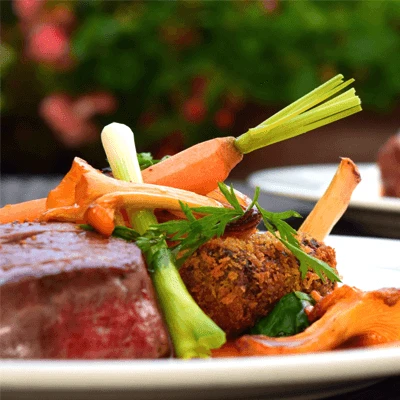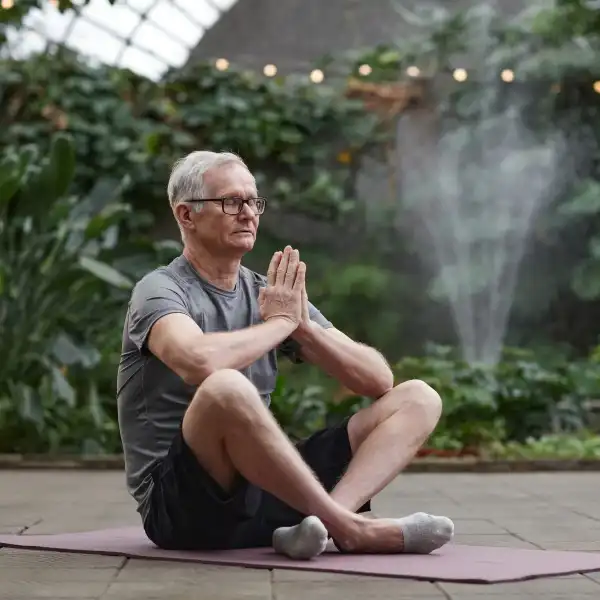Yoga teachers see it all the time. As students open themselves to the practice, “they are led very naturally to an understanding of do no harm,” says author Lynn Ginsburg, who has studied yoga, Buddhist and Hindu philosophies, and vipassana meditation for 20 years, and Sanskrit for a decade. “It’s a sneaky little thing that’s built into yoga—the more you do it, the deeper it gets into your organic process. And when that happens, it wakes you up. Suddenly, you really do feel compassion for every living being.”
So, for many yogis, like Christine Winters, that means leading a vegetarian life. Winters didn’t mean to break her vegetarian vow, but five years into her practice, she felt exhausted by the angry debates that inevitably ensued when she ate with her grandmother. When she found herself “almost coming to blows” with the older woman, she began to rethink ahimsa (the principle of nonviolence toward all living things).
“Here I was, straining to keep myself from screaming hurtful things at my own grandmother,” she recalls. “That created a feeling of violence inside me, and that’s against ahimsa.”
The more she struggled, the further apart she felt from friends and family: How could the nonviolent path have led her to this brink?“ There was a real social stigma around being a vegetarian,” Winters says. In Bellingham, Washington, where Winters lived (she now lives in Olympia), the vegetarian community was small, and she couldn’t figure out how to strike a balance between not eating meat and alienating the people around her.“It just got harder and harder for me to defend myself,” she says. “I kept asking, Where do I draw the line? Do I really have to decide between protecting myself from emotional violence, and animals from physical violence? Why am I in this position?” Many yogis agree that more important than what you eat are the questions you should ask before you eat:
- What is the source?
- How is it prepared?
- Was it cooked with kindness and focus and love?
- How do you eat? In what mental state?
“It doesn’t matter what the food is,” says Aadil Palkhivala, the founder-director of Yoga Centers in Bellevue, Washington. “It matters how it is.” Palkhivala suggests looking for nonviolence in the product itself, in its manufacture, and in its consumption. “If these things are taken care of, the earth will not suffer.” To some, this sounds like heresy. “Students deserve more than qualified statements from a yoga teacher,” says Sharon Gannon, the cofounder of the global Jivamukti Yoga Center. “If your profession is teaching yoga, you must present ahimsa as a yama, and not as a separate item. It’s great to have yoga in the West, but if it doesn’t include the application of nonviolence in every aspect of our lives, don’t call it yoga.” Palkhivala argues, “In yoga there is no right way. Ahimsa starts with what is appropriate for my dharma. When the spirit asks me to be a vegetarian, I should do that. If it asks me to eat meat, I should do that. We must connect within ourselves.” Palkhivala, who is also the president and founder of Eastern Essence, a line of organic dehydrated Ayurvedic Indian food, says he strives to “eat what is appropriate for the balance of the moment” and considers himself “not a vegetarian and not a nonvegetarian”—which means he occasionally eats meat. But vegetarianism makes him feel good, he says. “Meat takes a long time to digest and is produced with intense violence.”





